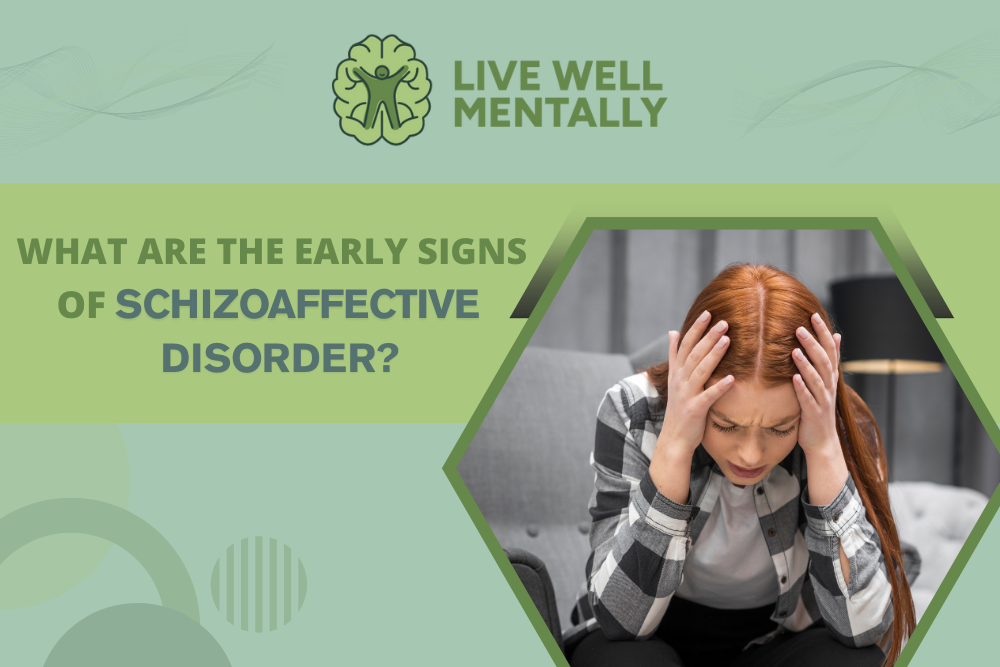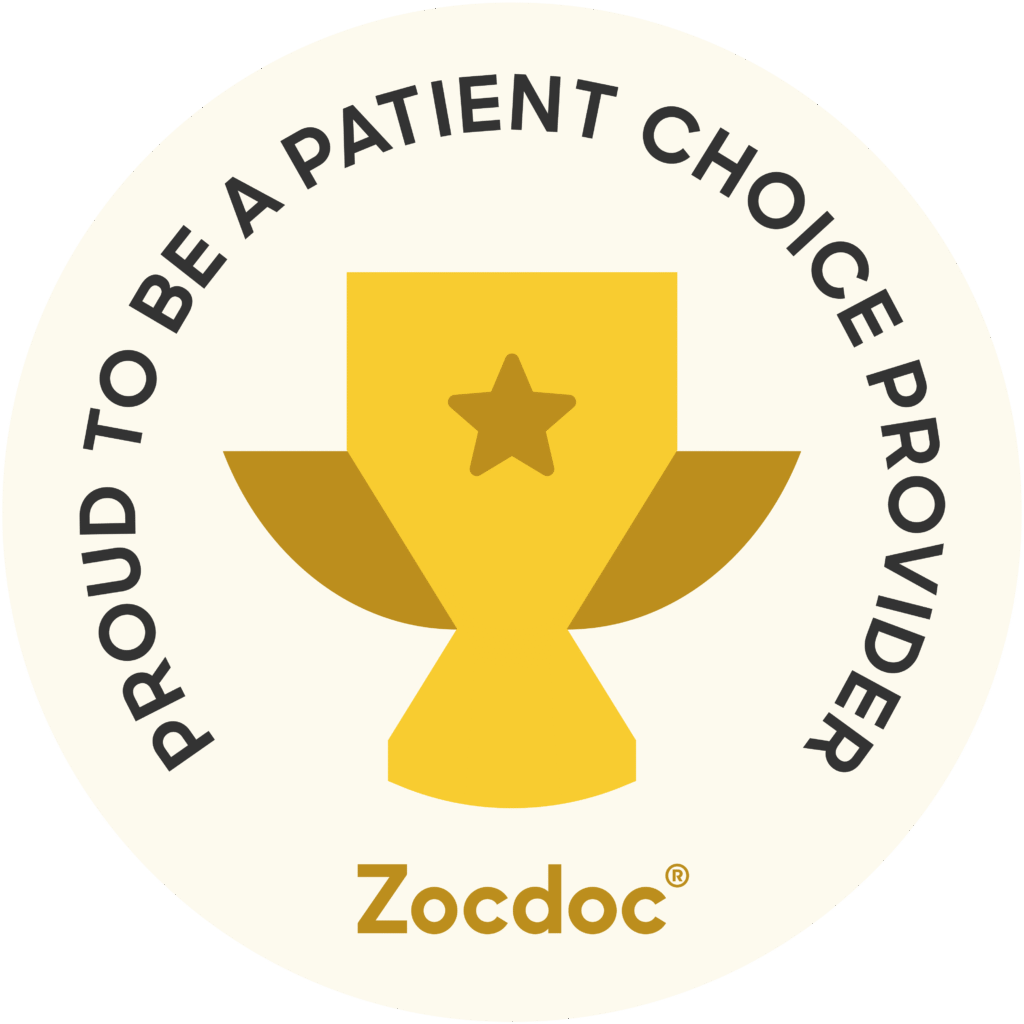Living well requires good mental health. Challenges can be overwhelming. One of these obstacles is referred to as schizoaffective disorder.
A combination of symptoms of schizophrenia and mood disorders, such as depression or bipolar disorder, is integrated into this condition. It isn’t easy to notice at the beginning of its existence because of this.
The earlier we notice the signs, the sooner we can get help. At Live Well Mentally, we believe that recognizing these signs early gives people a better chance at healing.
Let’s consider the early signs of schizoaffective disorder.
Understanding Schizoaffective Disorder
The schizoaffective disorder transforms the mind and the mood. It can make a person’s thoughts unclear and also change how they feel. A person may have:
- Schizophrenia Symptoms: Seeing things that are not there, hearing voices, or being confused.
- Mood Disorder Symptoms: Experiencing extreme sadness, despair, or sudden mood swings.
Not everyone feels the same. Other individuals experience mood problems, whereas some individuals experience more powerful thought problems. Schizoaffective disorder affects many areas of life, including school, work, and relationships.
At Live Well Mentally, we provide treatment that focuses on mood and thought patterns. Both are key to healing.
Early Signs of Schizoaffective Disorder
Schizophrenic affective disorder presents itself in different ways to every individual. However, there are some common early signs to notice.
1. Changes in Mood
- Being long depressed or in despair.
- Very low energy changes to high energy suddenly.
- Crying or becoming angry without an apparent cause.
- Loss of interest in hobbies or fun activities.
2. Unusual Thoughts
- Speaking about nonsense.
- Assuming that other people are working against them.
- Thinking they are special or that they are under surveillance.
3. Hallucinations
- Attuned to voices in the silence.
- Identifying people, echoes, or unreal representations.
- Experiencing an unseen touch.
4. Trouble with Daily Life
- Being behind in school or work.
- Loss of simple things, such as eating, bathing, or cleaning.
- Not being with friends and family.
- Spending too much time alone.
5. Alterations of Speech and Thinking
- Difficult-to-understand sentences.
- Switching between thoughts at a very high rate.
- Difficulty concentrating or paying attention.
- Forgetting things often.
At Live Well Mentally, we support families by showing them how to notice patterns. One small change may not seem significant, but when multiple changes occur simultaneously and persist for weeks, it is time to seek help.
Why it’s Hard to Notice Early
Schizoaffective disorder is often mistaken for depression or bipolar disorder alone. Symptoms may come and go, which makes it confusing. This is why professional guidance matters.
If you are not sure, Live Well Mentally offers private telehealth evaluations to provide answers and support. We look at the full picture so no part of the condition is missed.
Emotional and Social Impact
Schizoaffective disorder affects more than the mind. It also changes how people feel in daily life. Someone with this condition may:
- Struggling to keep friends.
- Feel unsure about what is real and what is not.
- Stay away from family or social events.
- Feel scared, guilty, or ashamed.
At Live Well Mentally, we support patients and families by reminding them that they do not have to carry this alone. Having the right care can make life easier.
When to Seek Help
If you see many of these signs in yourself or someone you love, it is time to seek help. Getting care early can:
- Stop symptoms from getting worse.
- Improve school, work, and home life.
- Make it easier to find the right treatment quickly.
Reaching out can feel hard, but it is a strong and brave step. At Live Well Mentally, we offer caring and confidential telehealth sessions so you can get help without leaving your home.
Treatment for Schizoaffective Disorder
Proper care helps people with schizoaffective disorder. Treatment includes:
- Medication management to balance the emotional state and lower hallucinations.
- Therapy to develop resilience and emotional fortitude.
- Supportive care to create better routines for daily life.
At Live Well Mentally, our provider, Theresa Antwi, MSN, APRN, PMHNP-BC, offers therapy and medication management. She works with each person to build a care plan that supports long-term health, not just short-term relief.
How Live Well Mentally Can Help
At Live Well Mentally, we understand how overwhelming this condition can feel. That is why we provide care that is:
- Personalized: Every person’s story is different, so we create care plans that fit your needs.
- Convenient: Our secure telehealth lets you talk to a provider from home.
- Supportive: We support you continuously, so you’re never unsupported in your mission.
We work with children, teens, and adults in the state of Connecticut and simplify care to make it easy to access.
Taking the First Step
Noticing the early signs of schizoaffective disorder is the first step toward healing. If these signs sound familiar, don’t wait. Early support can positively change the future.
Live Well Mentally offers easily accessible, professional care for schizoaffective disorder that is not biased. You have the right to receive support, healing, and an opportunity to live a better future.
Book a consultation today with Live Well Mentally. Let us offer you guidance, support, and care on your path to wellness.
FAQs
Q: How common is schizoaffective disorder?
It’s less common, but many people have it. Early treatment matters.
Q: Can children have schizoaffective disorder?
Yes, though it is rare in young children. At Live Well Mentally, we provide care for children ages 7 and older if symptoms appear.
Q: Can schizoaffective disorder be treated?
Yes. Counseling, treatments, and support systems can help people grow in their lives. At Live Well Mentally, we create custom care plans.


